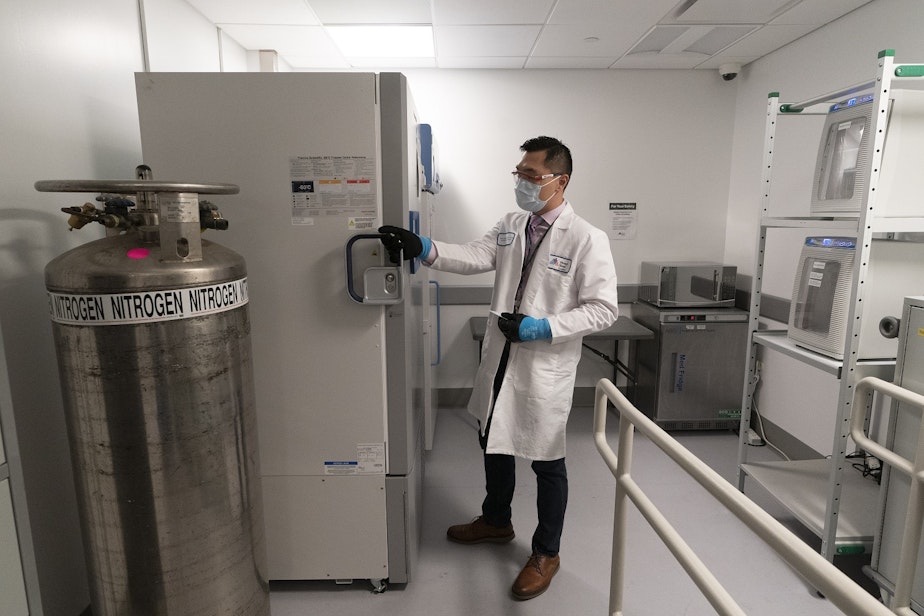As U.S. greenlights Pfizer vaccine, UW expert looks at hopes and challenges that lie ahead

The U.S. Food and Drug Administration has authorized Pfizer's Covid-19 vaccine for emergency use. Washington state officials say they're expecting to receive the first doses of the vaccine next week.
For a look at what comes next, KUOW’S Kim Malcolm spoke with vaccine expert Deborah Fuller, professor of microbiology at the University of Washington.
The biggest concern, I think, is whether enough people are going to be willing to take the vaccines. Scientists have done their job making what could be one of the most effective vaccines available,. But we still need to get people to take the vaccine, otherwise, it's going to be useless.
It's important to understand that vaccines provide three levels of protection. A vaccine can protect you from getting infected, which means the vaccines induce immune responses that are going to completely block the virus from getting in your cells.
Sponsored
But in reality, most vaccines don't completely protect from infection — most vaccines are designed to protect us from disease. That means you might get infected, but the vaccine induces immune responses that are able to quickly shut down the virus replication in your body.
So in this case, the vaccine would definitely reduce the amount of virus you're shedding, and clear it a lot quicker than you if you weren't vaccinated.
Less virus being shed for less amount of time is going to mean that person who's vaccinated and protected from disease — but not from infection — could still transmit. But the likelihood of doing so is greatly reduced.
Vaccines are also designed to protect from severe disease. So that means if you get infected, you might still get sick, but not sick enough to end up in the hospital with life-threatening symptoms.
We think of vaccines on an individual basis. In reality, vaccines are about protecting a population. We need to get enough people immunized so that the pandemic stops, before we can be completely free to go out in public without our masks on.
Sponsored
History shows that whenever a vaccine is introduced, you get a quick drop in cases — it starts happening immediately. But the time frame to reach what we call "herd immunity" can vary. It can take months, or it can take years. And it's really going to depend on us — on our communities stepping forward and getting immunized.
The vaccine is sort of the nail in the coffin for this virus. But it's not going to happen quickly if we don't get enough people to take it. And in combination, we all need to continue these non-medical interventions, such as the masks, and the social distancing.
Listen to the interview by clicking the play button above. This interview has been edited for clarity.





